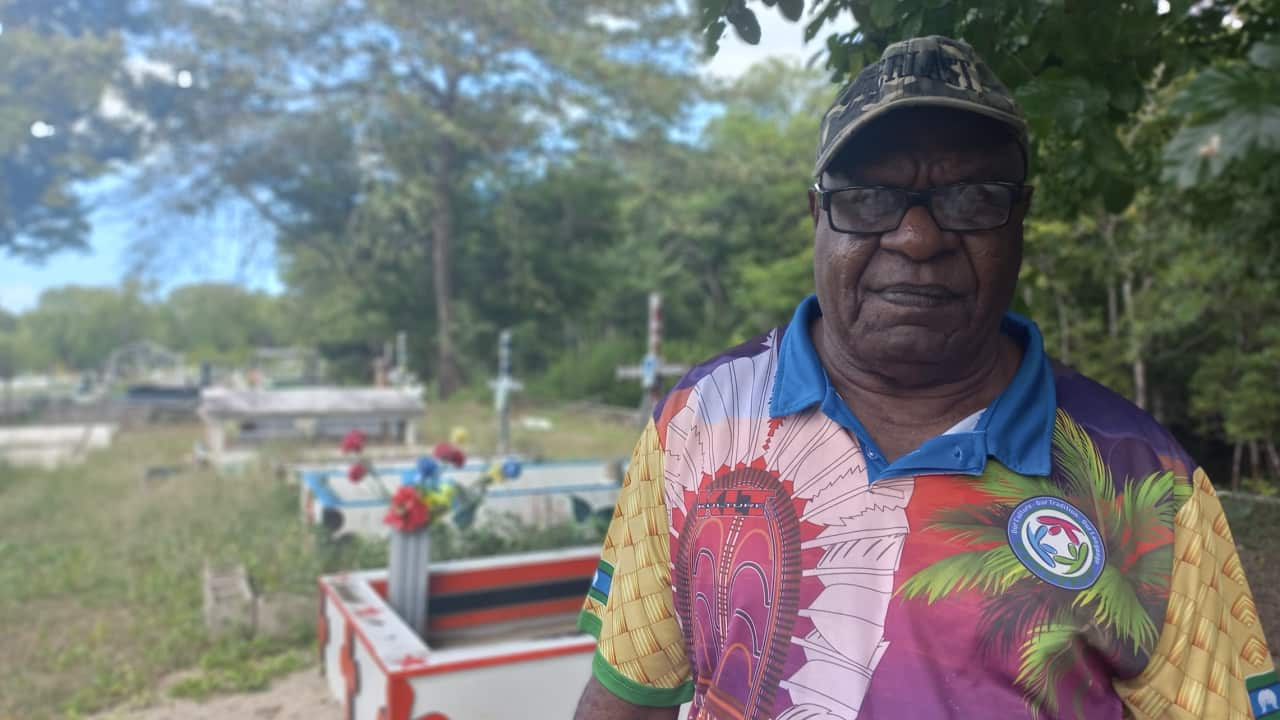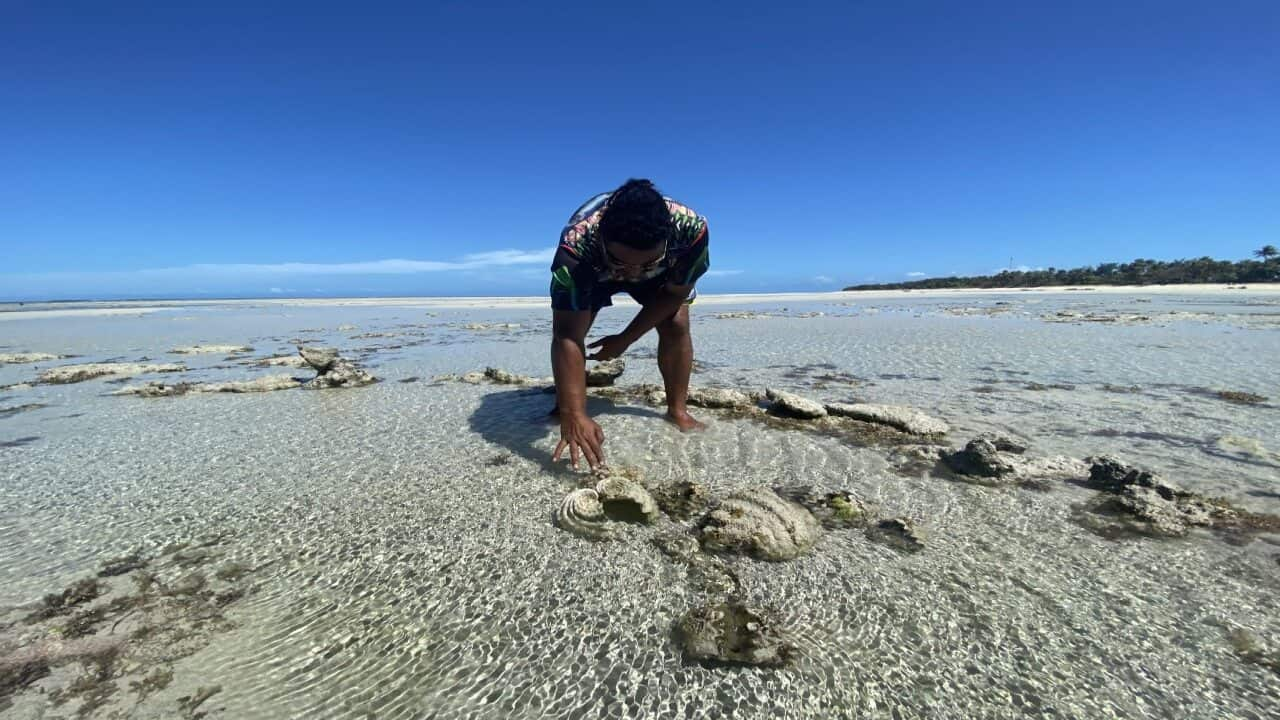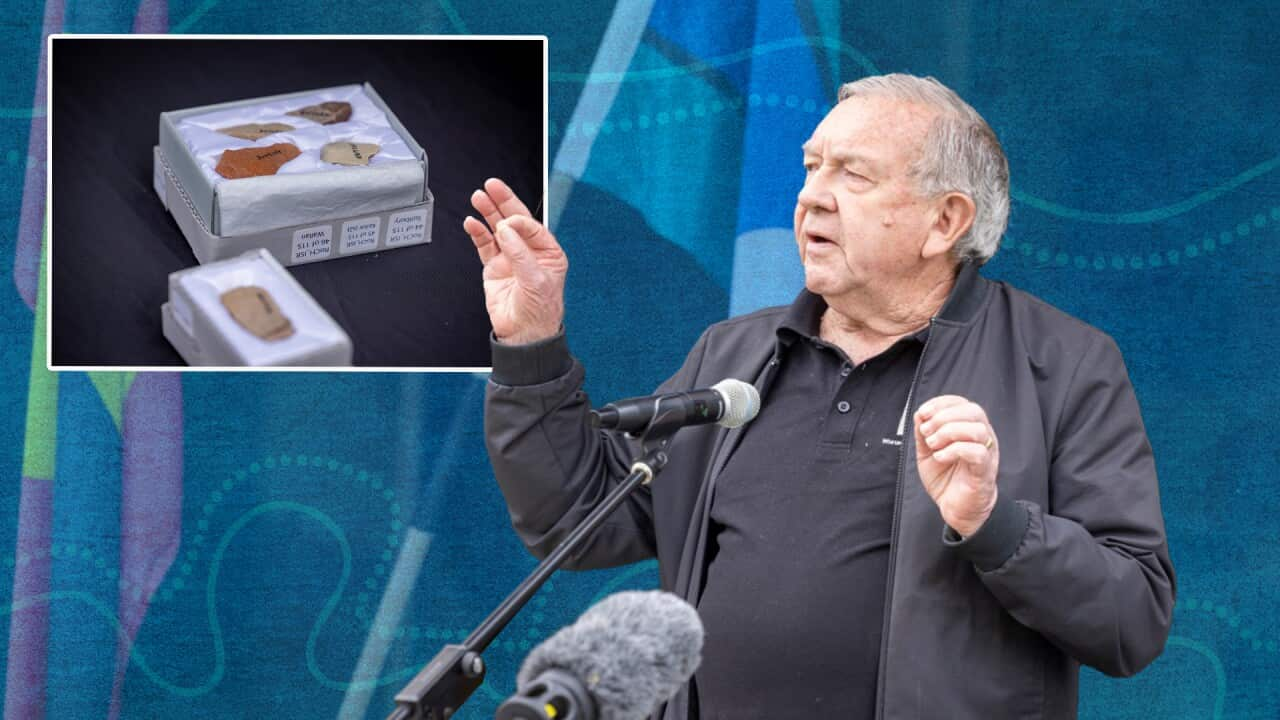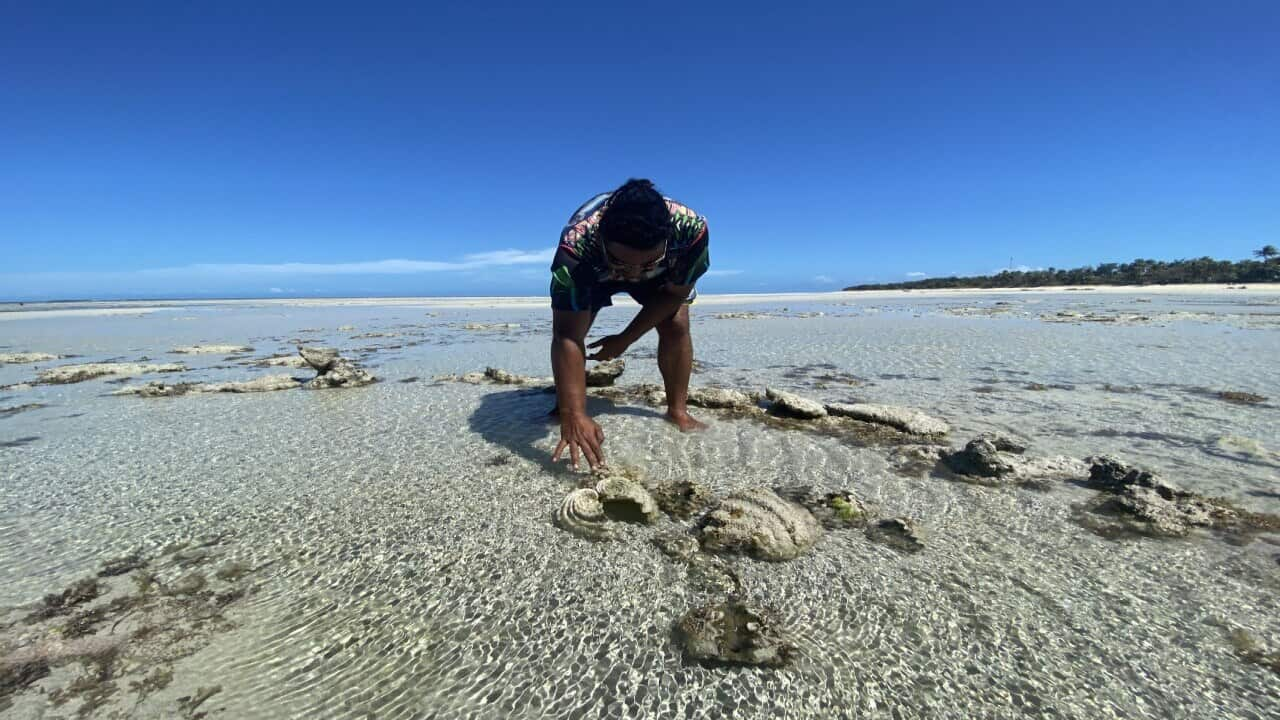Saibai island is a special place for its residents.
The island is mostly flat and is dense with mangroves; it’s one of the outer northern islands of the Torres Strait, just four kilometres from Papua New Guinea.
But what makes it special to residents like Ethel Jackonia is culture.
“Compared to other islands we all have different traditions, for Saibai there’s lots of things to learn about,” she said.
“I just love being somewhere and saying I’m from Saibai - this is where I’m from and this is how we do things there.
“I love my culture and I love Saibai because of its culture and today we’re still carrying on what was left for us from generation to generation.”

Saibai's coastline is being inundated as tides rise Source: NITV / Kerri Ritchie
The cost of climate change
There’s an immense pride among the residents of Saibai and a love for their island, which makes the changes they’re seeing on their Country all the more devastating.
As a low-lying island, Saibai is being heavily impacted by the effects of climate change.
Uncle Paul Kabai’s house on Saibai faces the water. He’s been watching sea levels creep higher and higher.
“I was born here on Saibai, there’s a lot of changes I’ve seen since the 1990s or 80s,” he said.
“Some of the big trees on the foreshore have died because there’s too much erosion happening.
“Because of climate change, seasons have changed, we’ve got a very strong current at the moment."
Most of the area here on Saibai has been impacted by erosion and our island is getting smaller.Uncle Paul Kabai
His concern has sparked Uncle Paul, alongside Uncle Pabai Pabai, who lives on neighbouring Boigu island, to take legal action against the federal government.
The men are arguing that the government has a responsibility to prevent the loss of their islands and communities due to climate change.
Standing in the sand where there was once a garden where Uncle Paul remembers planting food with his family as a child, he told The Point there’s already been so much lost. He fears his people will lose everything if nothing is done.
“I will take this voice as an Indigenous person to the government and tell them what our needs are,” he said.
“If the government won’t listen to us and the sea level is rising we’ll be climate change refugees . . . We will be moved to mainland Australia and we’ll have lost everything - our culture, even our identity we’ll have lost.
“There’ll be no more Saibai. We’ll have to tell the people of Australia, Saibai island used to be there but it’s no more.”
It’s not just the physical land that is being lost, Uncle Paul said gardening is a significant part of culture on Saibai, and throughout the Torres Strait, as are the hunting grounds where climate change has also taken a toll.

Saibai is a low-lying island, much of it covered in mangroves. Residents are now living in a strip of the island between the ocean and swamp Source: NITV / Kerri Ritchie
“How can we teach our kids, this is our culture, this is how we grow taro, this is the right season when to plant banana trees, when to plant sweet potato, when to plant taro.
“All those things are gone, there’s no garden, there’s too much salt.
“...It’s sad for us now to go out where we hunt before because those areas are all covered by sand.
“Back in the 80s it used to be a good area for dugong and turtle hunting when you go there, now it’s just sand, no more sea grass.”
'Saibai will be underwater'
Keri Akiba is also a long-term resident on Saibai, and he shares concerns about the future of the island.
“Especially with the climate change, it’s very evident on Saibai because it’s a low-lying area,” he said.
“We used to have beaches along the foreshore here but not anymore and eventually during high tides practically all of Saibai will be underwater, it’ll be submerged.”

Uncle Keri Akiba says his home will eventually be underwater. Source: NITV / Kerri Ritchie
“I’ve been here since I was a kid and I’m still here and I’m not planning to leave anytime soon,” Ethel Jackonia said.
Uncle Paul is also determined to never leave Saibai.
"I was born here and I’ll die here," he said.
For him, the class action against the federal government is not just for him, his family and community but to set a standard for First Nations people across the country.
“We are making this noise not only for us, not only for Saibai, it’s not only for Torres Strait, it’s for all the Indigenous people of Australia,” he said.













